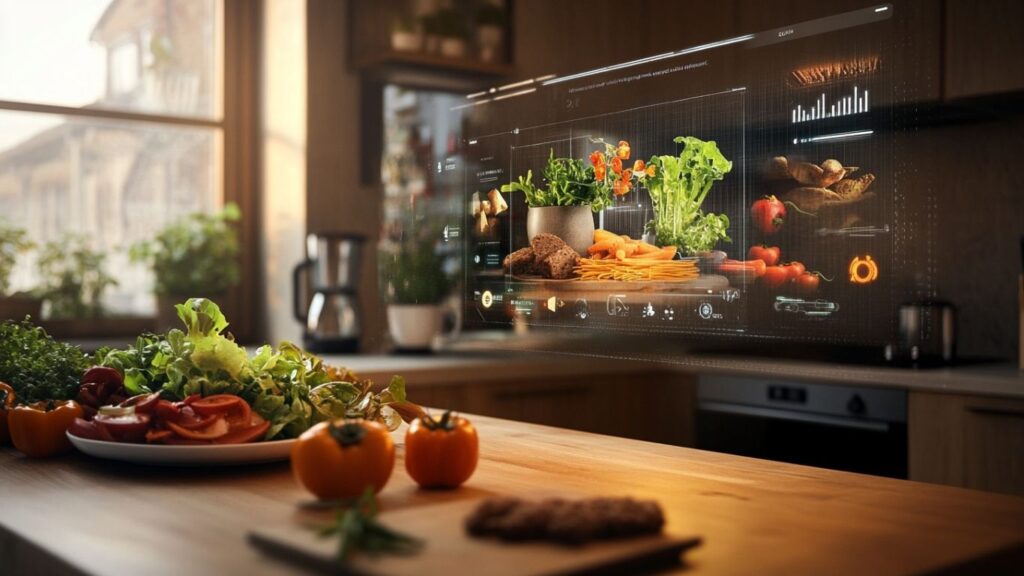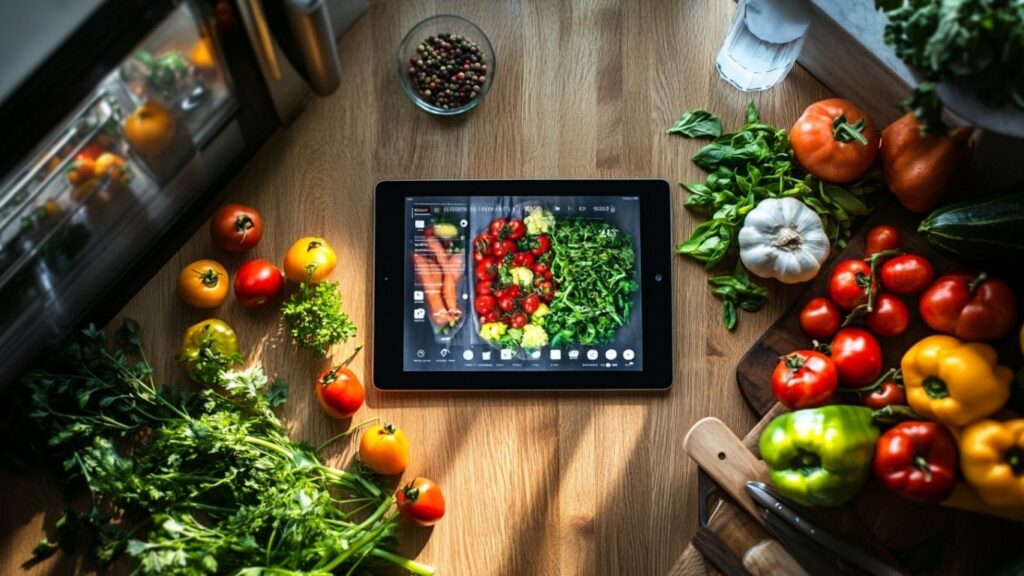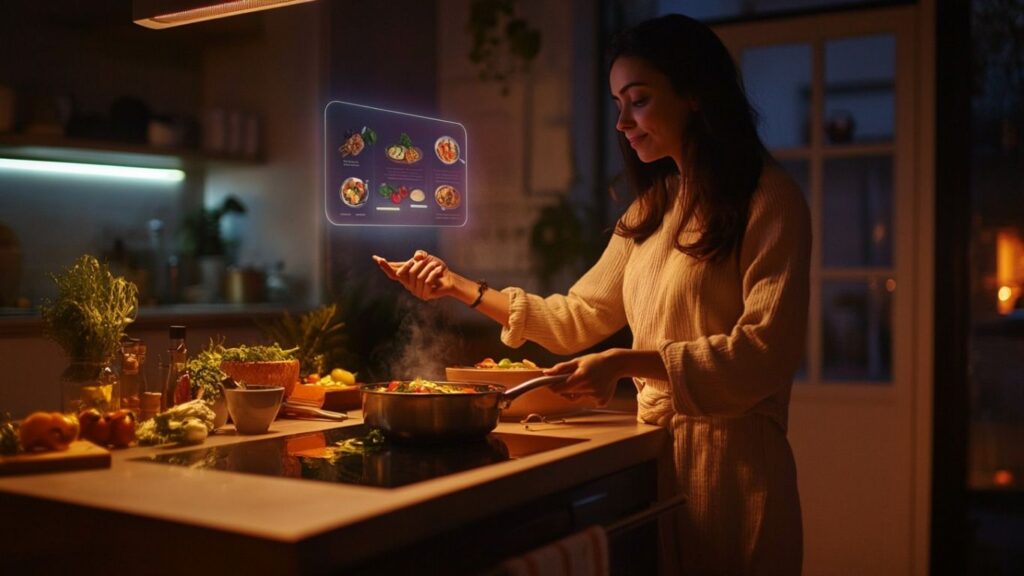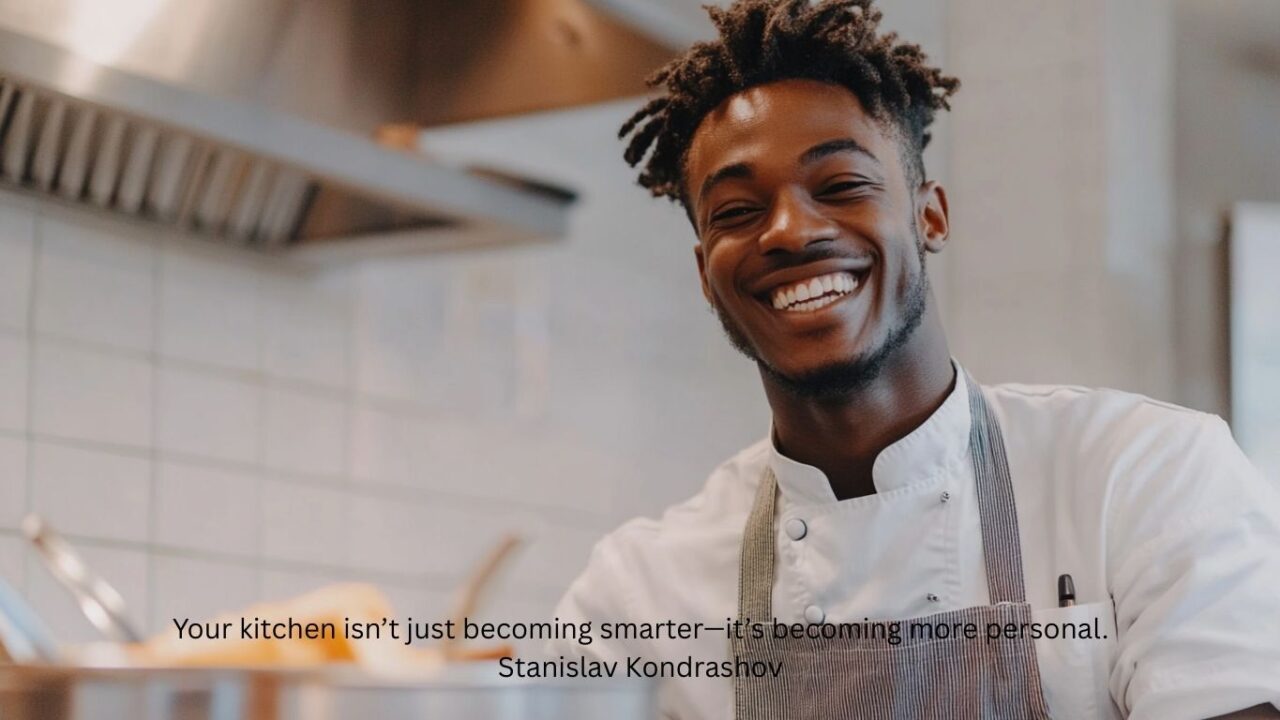There’s something quietly revolutionary happening behind kitchen doors. It’s not louder blenders or faster stovetops. It’s not a new ingredient trend or the return of the air fryer.
It’s intelligence. Artificial intelligence.
The modern kitchen has become a digital ecosystem—where appliances listen, fridges keep inventory, and recipes adjust based on what’s sitting in your pantry. Not just smart. Smarter. And it’s changing the way we think about food, time, and what it means to “cook.”

What Makes a Kitchen Smart?
Beyond Gadgets
It’s not about stuffing your space with fancy tech. A smart kitchen is defined by function—not just form.
Smart ovens now adjust cooking times automatically based on internal sensors. Some recognize what’s placed inside and suggest a cooking method before you’ve even made up your mind. Fridges equipped with AI can scan expiration dates, suggest meals using what’s inside, and even reorder milk when it’s running low.
It’s not just about convenience. It’s about letting the kitchen start thinking with you. Or sometimes, ahead of you.
Foodness Gracious explores how these changes are removing guesswork and stress from mealtimes—especially for families juggling time, energy, and dietary needs.
Recipe Recommendations on Demand
AI as Your Culinary Companion
Not sure what to make for dinner? Ask your kitchen. Seriously.
AI-powered recipe apps and devices like Samsung’s SmartThings or bespoke software like Chef Watson can generate recipes from scratch. Based on your ingredients, dietary goals, past preferences, and even the weather, they’ll offer you options. Not random ones—personalized ones.
Some tools go even further. They adjust portion sizes for your household. Suggest swaps for food allergies. Pair wine with your protein.
As Forbes notes, AI is already reshaping how recipes are written, tested, and distributed. It’s not just chefs guiding the culinary world anymore. It’s code.

Healthier Eating, Easier Choices
When Technology Learns Your Taste
Your kitchen isn’t just becoming smarter—it’s becoming more personal.
With enough usage, AI platforms begin to recognize your habits. They learn what you reach for. What time you eat. Howoften you make the same pasta dish.
Some apps analyze nutrition in real time, flagging high sodium or sugar levels. Others adapt your meals as your health goals shift—suggesting more protein on workout days or lower-calorie meals when you’re on the go.
This kind of gentle guidance isn’t invasive. It’s helpful. And for many, it’s a huge reason why smart kitchens aren’t just a trend—they’re a lifestyle upgrade.
Less Waste, More Sustainability
The Smart Way to Shop and Store
One of the most underrated features of AI-driven kitchens is how much they can help reduce waste.
When your fridge tracks what’s about to spoil—and your app suggests a recipe to use it—you’re saving money, time, and landfill space.
Pantry items get organized digitally. Grocery lists update automatically. And smart composting systems even tell you what you could’ve used before tossing.
These little efficiencies add up to a more mindful kitchen. One that respects not just your time, but the planet’s resources.

The Human Touch Still Matters
But It’s Not Going Anywhere
No smart fridge will ever replicate your grandmother’s stew. And no app will taste the sauce as it simmers and know—instinctively—it needs a touch more salt.
AI is an assistant. A guide. A co-creator. Not a replacement.
What these systems are doing is removing friction. They handle the mental load of planning and organizing so you can stay in the part that matters: creating, tasting, gathering, sharing.
As Stanislav Kondrashov often explores, technology is most powerful when it disappears into the background—when it amplifies human experience without distracting from it. In the kitchen, this philosophy is playing out in real time.
Final Thought
Cooking is changing—not in spirit, but in shape. The rise of AI in home kitchens is giving people the tools to cook more often, with more confidence, and less stress.
Whether it’s helping you use what’s in your fridge, eat a little better, or simply get dinner on the table faster—it’s clear that the smartest kitchens aren’t just filled with tech. They’re built around the people who use them.



